Mind reading is an art; not a gimmick. Do you want to build better relationships? Here are some easy mind reading tips and how you can put it into practice.
Whether you are doing a job or business or involved in social work, the ability to read minds can give you an extra edge. Mind reading is a powerful skill that helps you to sense things that people don’t say and process its meanings.
There is one thing common with most successful people in this world, they are empathetic and have mastered mind reading skills too. It helps you perceive people beyond what they speak and foster a deep connection with them.
According to Hodges and Myers, “Empathy is often defined as understanding another person’s experience by imagining oneself in that other person’s situation”.
People with empathy tend to understand other people’s problems or feelings or experiences as if the problems are experienced by them, but without actually experiencing it. A distinction is maintained between self and other.
Some people confuse this process with witchcraft and believe that somebody is trying to manipulate them. However, in psychology, it is called ‘empathic accuracy’.
Empathetic accuracy is how accurately one can infer the thoughts and feelings of another person. Being able to read the mind doesn’t mean you will use manipulative techniques to your advantage once you know what other people are thinking.
In fact, if we focus and look at it’s the brighter side, mind reading can allow you to understand others perspectives and connect to them on deeper levels.
Understanding the needs of customers can help you deliver better services, similarly, a nurse who can understand patients’ needs can deliver better care.
When you are perceptive about varied stimuli around you, you can become more successful in life and work.
You don’t need any superpower to read people’s mind, it’s a learnable skill.
How to read someones mind psychologically? Here are 6 easy mind reading tips and tricks to efficiently read minds:
6 Cool Mind Reading Tips To Build Better Relationships
1. Focus on body language
Communication is not just about how you talk. Body language is the non-verbal mode of communication where you convey information through physical behavior. Non verbal cues like your tone, expressions, eyes, and gestures, sitting position, body posture speak volume about your personality.
Body language clearly says what someone is thinking. Our thoughts are clearly reflected in our actions, hence it’s understandable that one’s body language is directly connected to what the person might be feeling or thinking.
Facial expression and body postures are outstanding sources of decoding a person’s emotions.
For example, when we are stressed, our forehead is wrinkled, similarly, tilting the head sideways during conversation is a signal that you are genuinely interested in the conversation.
When one is delighted, one’s smile will reach the eye and they will crinkle. A lack of crinkles around the eyes indicates a potentially fake smile.
When standing or sitting, if someone’s feet are pointed in your direction, it means they have a favourable opinion for you. If the feet of the person you’re talking to is pointing in the direction of someone else, it’s likely he or she would rather talk to that person and not you.
On the other hand, sitting or standing with arms crossed but foot kicking slightly implies feeling emotionally detached from the discussion.
We cannot manipulate our voice, movement of hands, and other non-verbal cues voluntarily. So, body language is a foolproof reflection of one’s thoughts. Body language analysis is an important strategy for mind reading in a relationship.
Read What Your Favorite Lipstick Color Says About Your Personality
2. Read eye cues
Wondering how to read mind through eyes? Well, eyes tell everything about a person, they don’t lie and it’s quite true that eyes are windows to the soul.
When you gaze at a person’s eyes, you gain a lot of information regarding their emotional state. Eyes can signal trust, distrust, contentment, fear, security, and a wide range of feelings. We can fake a smile but cannot control our pupils.
Making eye contact when talking to a person is a sign of confidence and assertion. Direct and prolonged eye contact is also a sign of romantic interest.
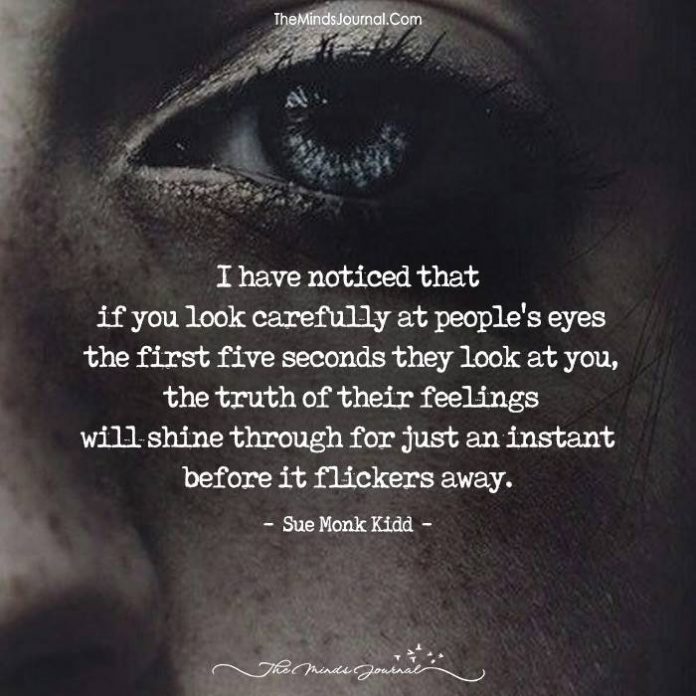
Our pupils dilate when we look at our crush or something that we love and when pupils contract its a sign of rejection. On the other hand, avoiding eye contact is a sign of lack of interest or that you are hiding something.
We often look upwards when we are trying to recall something or visualise an event or an image. But, looking down involves not looking at the other person, which hence may be a sign of submission.
When you are happy, your eyes elongate, wrinkle and shine and when you are sad, your eyelids raise, as does the lower edge of the eyebrows.
Half-closed eyes indicate tiredness; looking down and to the right means, you are paying attention to the internal emotions; while looking down and to the left means you are talking to yourself.
Do you know your eyes also reveal sexual interest?
According to psychologists, arousal increases your pupil size. It means pupil size adjusts according to our emotions and expectations. So, carefully read the eyes of the other person to know their mind.
Read How to Read Eyes And Know What Someone Is Thinking
3. Pay attention to the tone of voice
Do you know voice is an identity of a person?
According to a study at the Autonomous University of Barcelona, a deep tone of voice is a sign of maturity and that a person can be trusted. Extremely deep voices can signal the dark feelings of a person.
A firm, confident tone of voice means what you are talking about is important. Speaking in a high volume indicates weakness, selfishness, and impatience and speaking in low volume indicates inexperience and inhibition.
A warm and sweet voice means a person is trying to get closer and if close and sharp he/she is trying to maintain a distance with you.
Vocalization or articulation tells a lot about someone’s desire to be understood. For example, stumbling indicates aggressiveness, well-defined means open to communication, and imprecise indicates mental confusion.
Have you ever thought of your speed of speech?
If no, then please know that speaking very fast indicates tension and the intention to hide information. Whereas, speaking slowly indicates calmness.
Therefore, the energy that you put in talking is far more important than the words you utter. By paying close attention to the voice quality, speed of speech, volume, and articulation, you can perceive a lot about a person.
In conclusion, tone of voice can mean everything and it is as reliable as a fingerprint. And if you have the power to read minds, you will take cues from the tone of the voice.
4. Observe breathing
How you breathe tells a lot about your mental state and the pace you live your life at. Surprised?
The study, entitled “Respiratory Feedback in the Generation of Emotion,” showed a direct link between emotions and breathing patterns.
People breathe through the base of their spine when they are relaxed. During tension and anxiety, their breathing is short, excessively rapid and shallow. It can also be the sign that a person might be shy and uncomfortable sharing personal life information or trying to hide information.
Read Are You Normal Or Weird? Find Out With This Personality Quiz
5. Increase the time of interaction
In order to read mind, you must spend time with people. The more you interact and discuss various topics, the more you can observe their body language, tone of voice, breathing style, and know their thoughts.
People don’t open up to strangers, but once you are friendly to them, they will slowly open themselves up about their ideas, attitudes, values and mental set.
A peep into another person’s psyche helps learn more about their thought process. When you spend time with someone, it will become easier to understand how that person reacts to certain situations because you have been a witness to their behavior.
It is for this reason that you are shocked to not notice when your friend does something unexpected. You may not have seen that coming, which is an indication that you guys were not spending enough time together.
Oftentimes in a relationship, even after years of being together, you cannot understand what the other person has in their mind. Being mindfully connected to a person helps understand their traits and how they behave in a number of contexts.
6. Protect your energy
In this universe everything is energy, so we can influence the matter with our thoughts and intentions. Since, our bodies and thoughts are energy, we can constantly send cosmic signals through our intentions and thoughts.
According to a study, people were trained to send healing and positive intentions and thoughts to other people (outside the reach of physical senses). The results showed that such distance healing could influence the autonomic nervous system of the recipients of their intentions.
Even when we talk to people and exchange ideas we send energy. And when trying to understand the thoughts and ideas of another individual, we engage in reading them to some extent.
That’s how we know whether a person is on the same page, interested in discussion or if it’s time to change the conversation.
Read Empathic Illnesses: Do You Absorb Other People’s Symptoms?
We cry when our loved ones cry and we feel happy when they are happy. So, everything depends on how we exchange energy. Just like distance healing study mentioned above, you can send positive or negative intentions to the person you want.
Similarly, the intentions and thoughts you are receiving from other people can influence your mind and brain. So, be careful with whom you are connecting and try to initiate a deep relationship.
Because your mental state will influence the other person’s mental set and vice versa. If you are angry or holding grudges against someone in your circle, your friend or colleague will reflect that same feeling.
And if someone is in depression, you will be able to absorb that energy and tend to feel low.
Besides to be able to read minds, you need high self-awareness to protect your energy. You have to be aware and centered on yourself, to be better able to read the mind of another person.
That said, you also need to be empathetic about the other person – an underrated humane quality.
Please share this article with anyone who you may think will find it valuable and helpful.
References
Hodges, S.D. and Myers, M.W., 2007. Empathy: Encyclopedia of social psychology (pp. 296–298).
Dossey, L., 2008. Distance healing: evidence. The Parapsychology Revolution. New York: Jeremy Tarcher/Penguin, pp.216-232.
Müller, C., Cienki, A., Fricke, E., Ladewig, S., McNeill, D. and Tessendorf, S. eds., 2013. Body-language-communication (Vol. 1). Walter de Gruyter.
Vogeley, K., Bussfeld, P., Newen, A., Herrmann, S., Happé, F., Falkai, P., Maier, W., Shah, N.J., Fink, G.R. and Zilles, K., 2001. Mind reading: neural mechanisms of theory of mind and self-perspective. Neuroimage, 14(1), pp.170-181.
Nichols, S. and Stich, S.P., 2003. Mindreading: an integrated account of pretence, self-awareness, and understanding other minds. Clarendon Press/Oxford University Press.
Frequently Asked Questions (FAQs)
Can I read my partner’s mind?
You don’t need any superpower to read people’s minds, it’s a learnable skill. All you need to do is pay careful attention to their body language, and notice eye cues, and sometimes the tone of voice.
How do mentalists read minds?
Mentalists use techniques, such as hypnosis, Neuro-Linguistic programming (NLP), or reading human behavior, to make it seem like they can read minds.
Can empaths read minds?
Empaths cannot read minds. They are only capable of understanding the feelings of other people. So they may sense feelings rather than read minds.
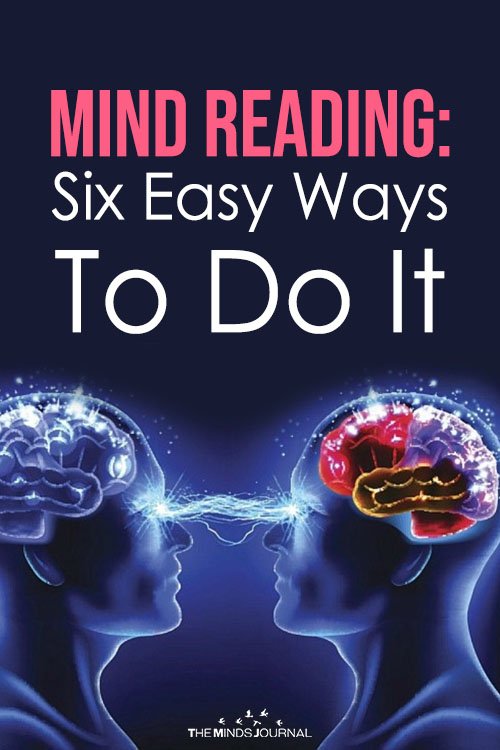

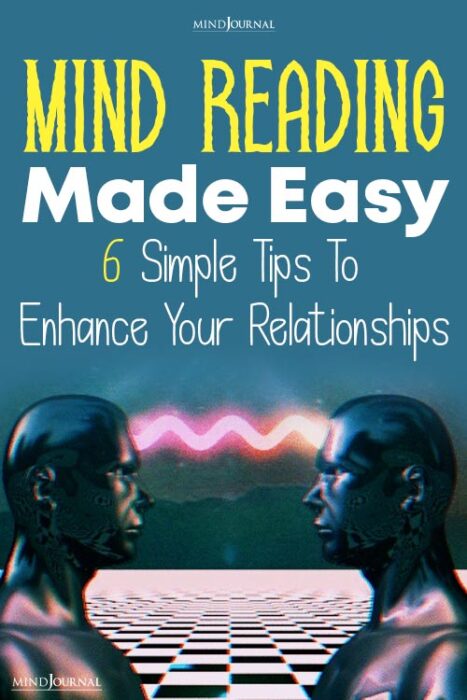
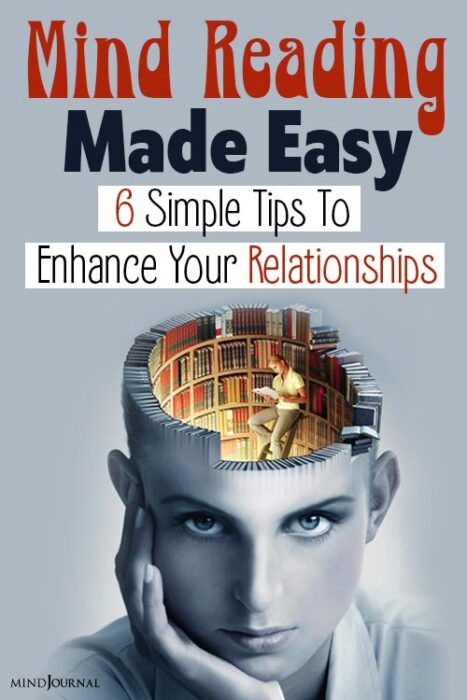
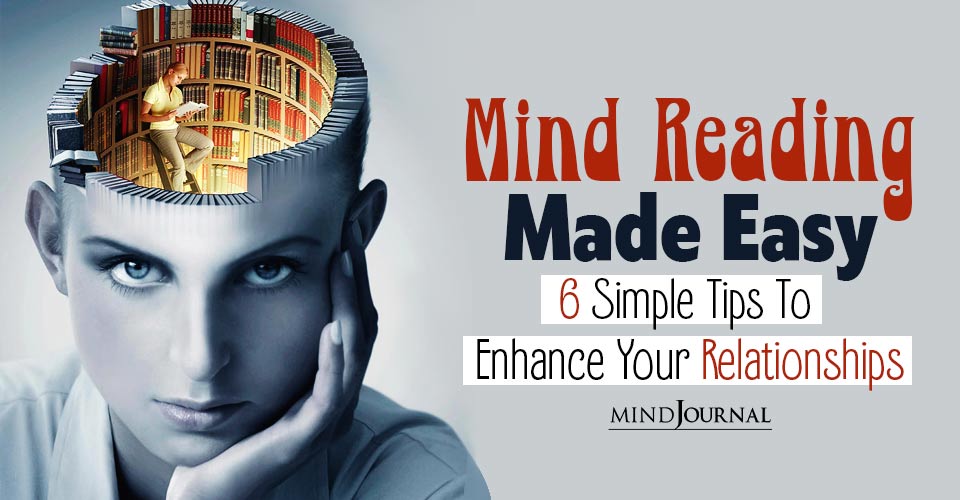







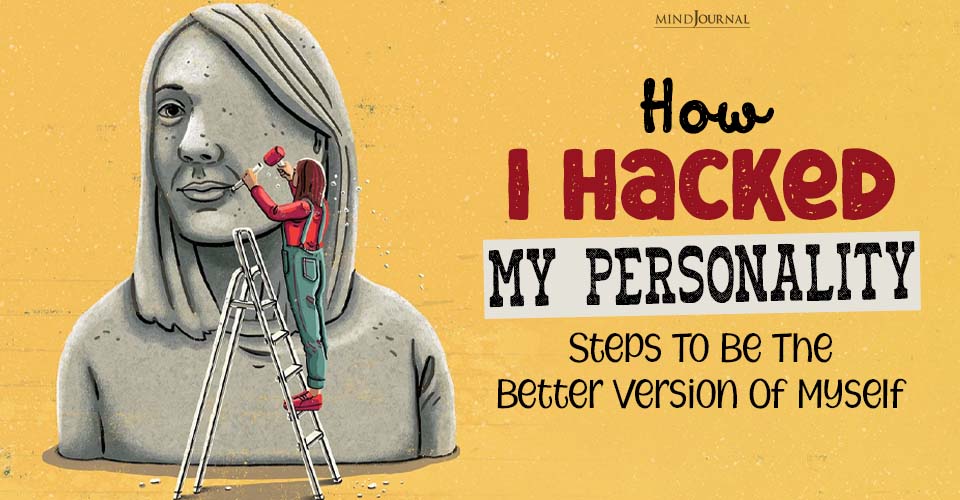





Leave a Reply
You must be logged in to post a comment.